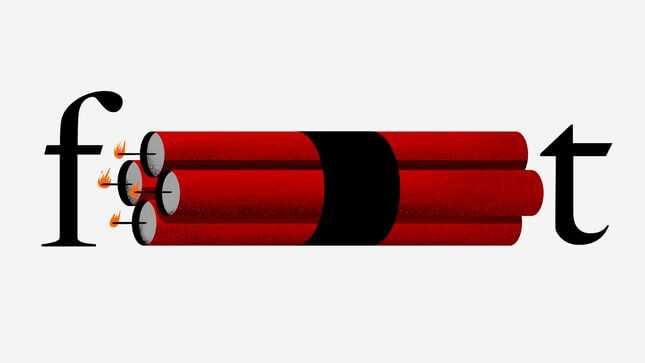
Image: Jim Cooke
While its power is unquestionable, the sheer usefulness of the word “faggot” is largely unsung. There are its non-slur meanings—a bundle of sticks, a meatball, cigarettes in the U.K. (generally referred to as fags)—but even as a pejorative, it’s been endowed with an uncommon multivalence. It is foremost known as a crude synonym for a gay man, the kind of thing people hear before they’re beaten to death, the kind of thing bigots say casually to refer to the group. As such, it has been both reiterated and reappropriated by gay men (as well as other queer people like trans women who themselves were inevitably called a faggot prior to transitioning and perhaps still are) as an insult and term of endearment. At times it is an in-group simultaneous expression of endearment and contempt, because emotions are complicated, especially those deriving from how we feel about ourselves and others like us.
But for years, there’s existed a rather mainstream rationale that the word “faggot” doesn’t necessarily refer to gay people, particularly in homosocial settings of self-identified straight men. In these social settings, it’s a generalized insult to note weakness. “You don’t have to be gay to act like a faggot. You don’t even have to be a man to act like a faggot. Anybody can act like a faggot,” said Chris Rock in a stand-up set before going on to describe a scenario that would make him a faggot (getting so wrapped up in singing Gwen Stefani in his car that he misses when the light turns from red to green). In 2013, Eminem claimed that his use of “faggot” in his music was not homophobic, but “more like calling someone a bitch or a punk or asshole.” To explain why he used the word to refer to a paparazzo in 2014 Jonah Hill explained, “I said the most hurtful word I could think of at that moment and, you know, I didn’t mean this in the sense of the word… I didn’t mean it in a homophobic way.” His apology seemed more sincere than most because he acknowledged that effect superseded intent: “How you mean things doesn’t matter. Words have weight and meaning and the word I chose was grotesque and no one deserves to say and hear words like that.”
While no one would mistake these ostensibly heterosexual men as queer theorists or sociologists, there is an academic reading that supports their perspective. The word faggot (or fag), Peggy Orenstein writes in her book-long survey of masculinity among young American men Boys & Sex, “has become less a comment on their sexual orientation than a statement about their manhood.” Orenstein cites the work of sociologist C.J. Pascoe, whose 2007 book, Dude, You’re a Fag: Masculinity and Sexuality in High School, detailed the potentially non-homophobic usage of “faggot,” arguing that it’s used to maintain social order amongst straight-identified boys, and as such, referring to it as an anti-gay term is reductive. Wrote Pascoe:
-

-

-

-

-

-

-

-

-

-

-

-

-

-

-

-

-

-

-

-

-

-

-

-

-

-

-

-

-

-

-

-

-

-

-

-

-

-

-

-








































